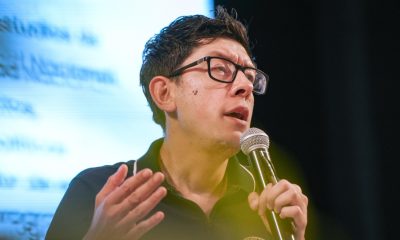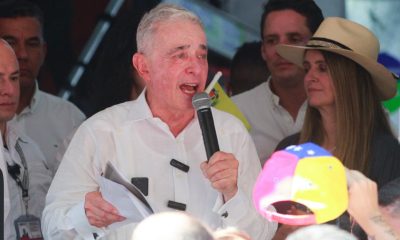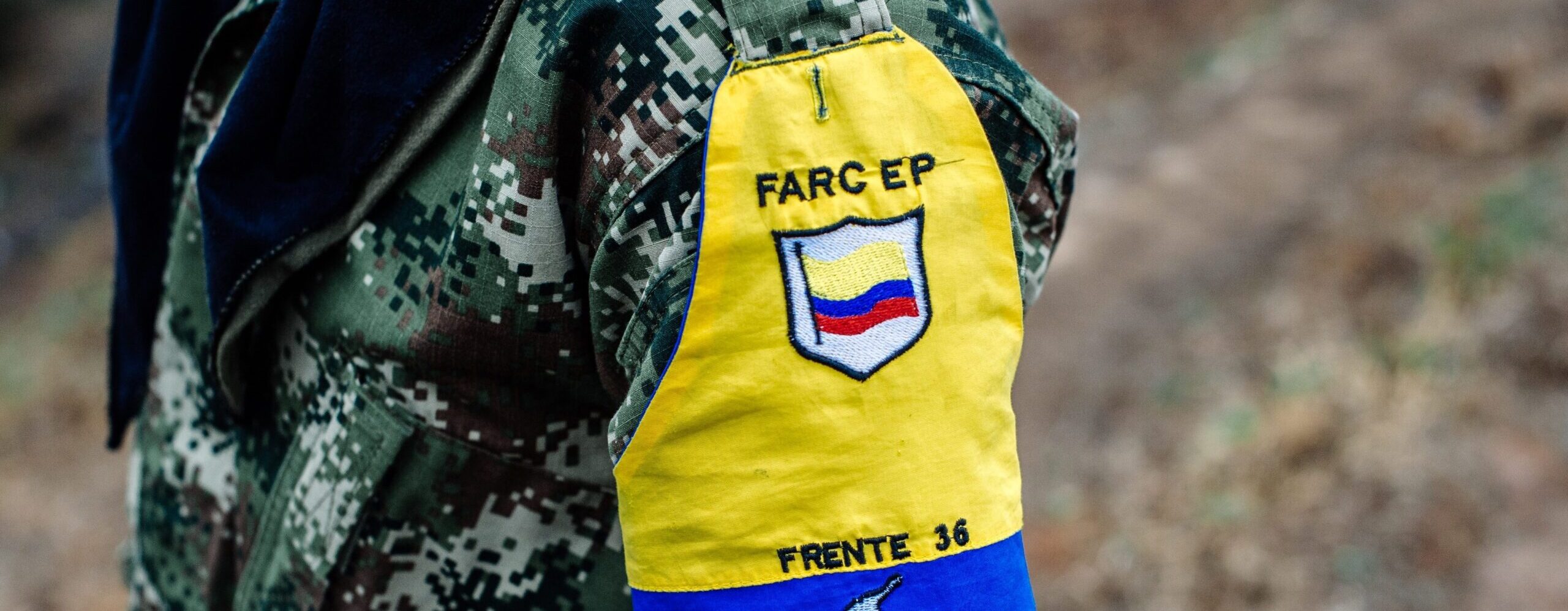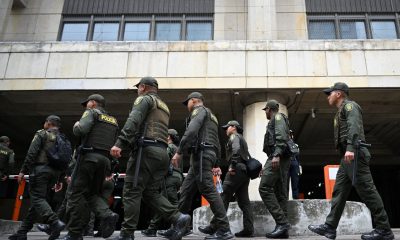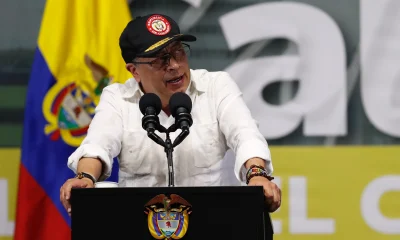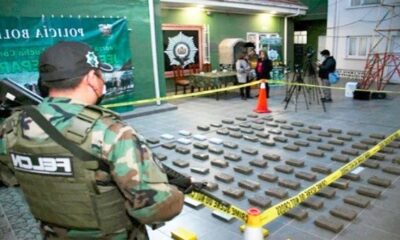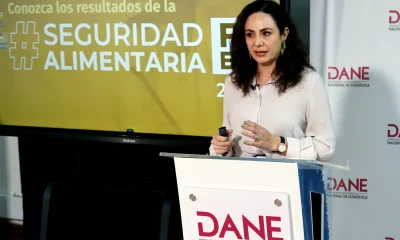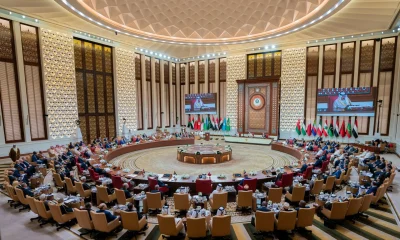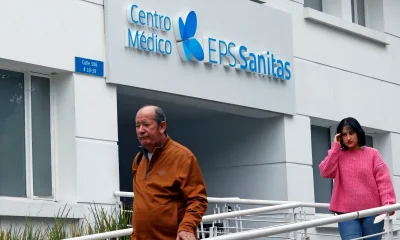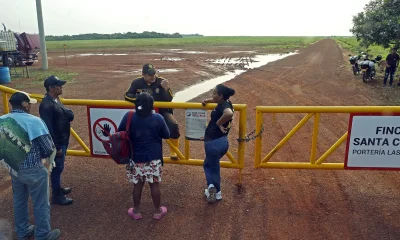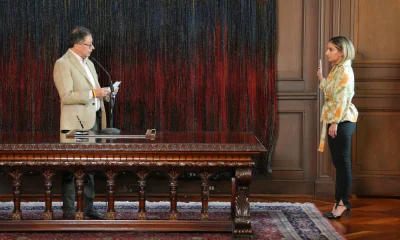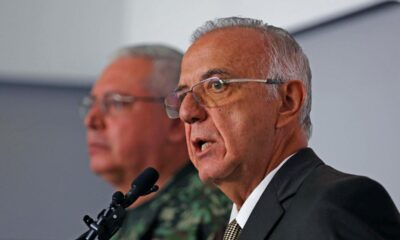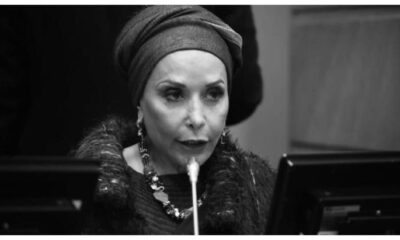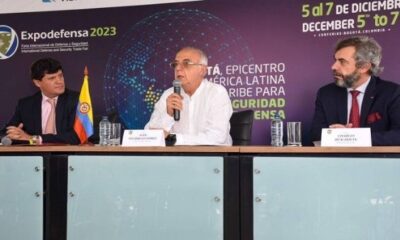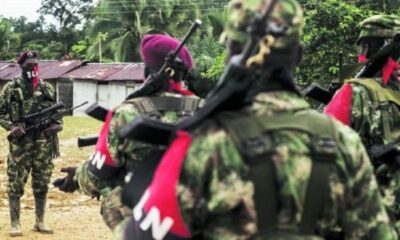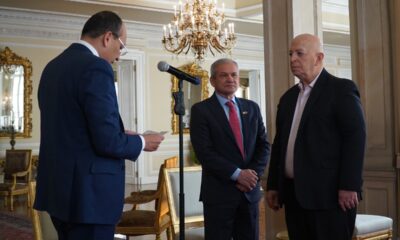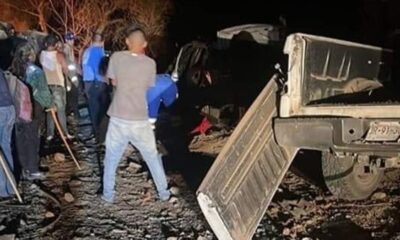International
Mexican cartels: the hidden hand behind Colombia’s drug trade
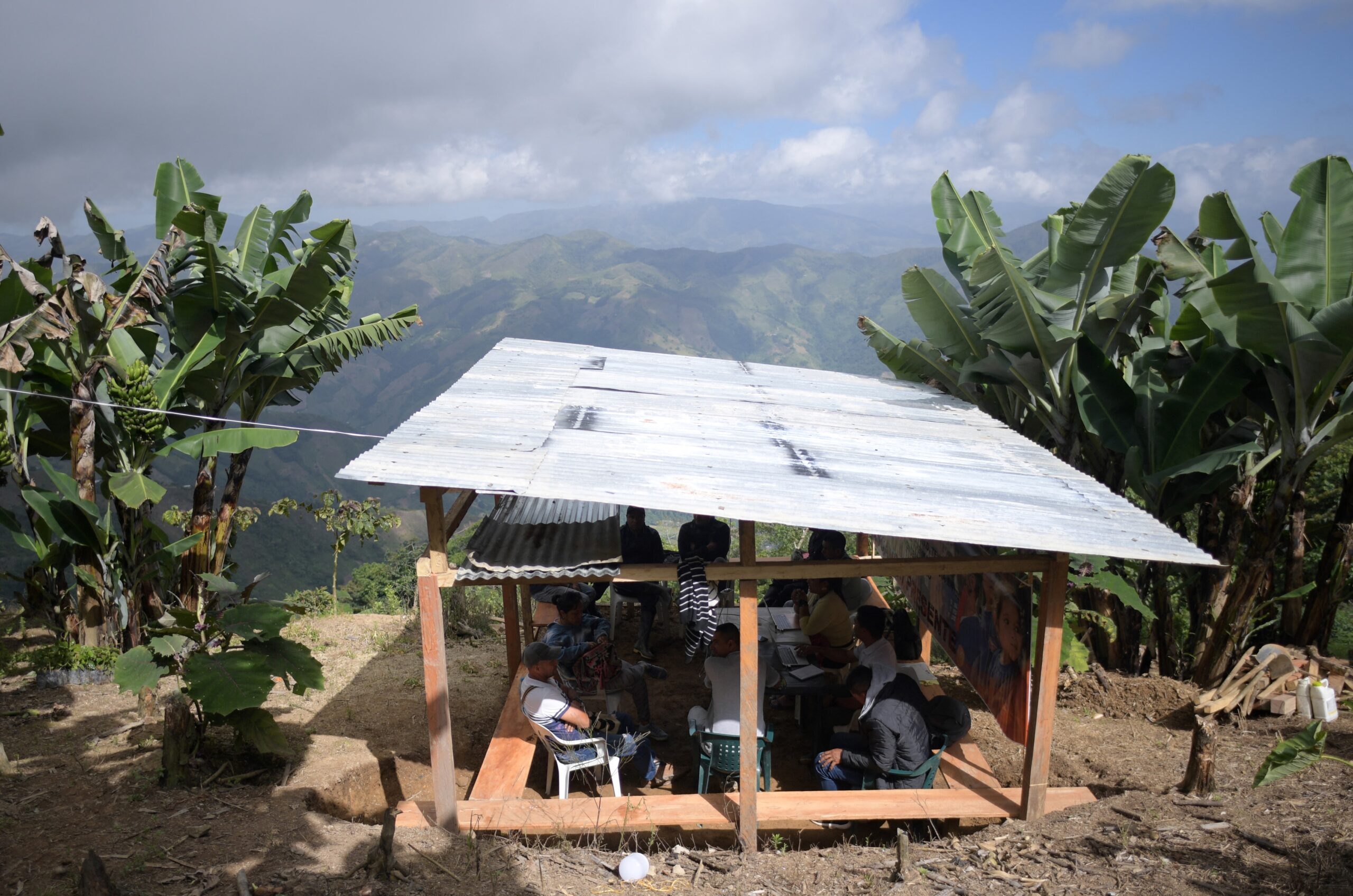
January 16 | By AFP | Diego Legrand and Hector Velasco |
A wide-brimmed hat, leather bandolier, rifle in hand: Colombian drug lord Pablo Escobar used to dress up as a Mexican revolutionary hero for amusement.
But during his heyday as the world’s most wanted drug baron, he could not have imagined that Mexicans — then mainly smugglers for the Colombians — would end up running the empire he had constructed with so much bloodshed.
From being a mere stop on the smuggling route to the United States in the 1980s and 1990s, Mexican cartels have largely taken over the business, financing drug manufacturing in Colombia and controlling shipments to the United States via Central America.
“Power has shifted from the Colombians to the Mexicans, because those who control the most profitable parts of the business have changed,” Kyle Johnson, an expert at the Conflict Responses Foundation in Bogota, told AFP.
For more than a decade in the 1980s, Escobar and his feared Medellin cartel dominated global cocaine trafficking with his rivals of the Cali cartel, which in turn controlled the trade after the drug lord was shot dead by police in 1993.
Forty years of America’s “war on drugs” later, Colombia remains the world’s biggest cocaine producer, and the United States its biggest consumer.
A kilogram (2.2 pounds) of cocaine, which sells for just under $1,000 in Colombia, fetches as much as $28,000 in the United States and about $40,000 in Europe, according to the specialized site InSight Crime.
But the fall of the kingpins — first Escobar, then the Cali cartel’s Rodriguez Orejuela brothers — had an unintended consequence.
Colombian drug traffickers “atomized” into smaller groups that are more difficult to trace and eradicate.
‘The Invisibles’
It also left a void for Mexican cartels to fill.
In the 1990s, “there was a sort of division of labor: the Colombians produced and packed the coca, moved it to the Pacific or Caribbean coast or the ports (while) the transfer to Mexico… or the United States was done by Mexicans,” retired police general and former vice president Oscar Naranjo told AFP.
Today, the Mexicans control several aspects of the business, shipping cocaine directly from Colombia to the United States in speed boats or semi-submersibles.
With the US market largely in Mexican hands, Colombian groups have increasingly set their sights on Europe.
In the last three years, drugs from the South American country have been arriving by cargo ship “in very large quantities” in Spain, Belgium or the Netherlands, said Esteban Melo, coordinator of the UN Office on Drugs and Crime in Colombia.
The Mexican traffickers are known in Colombia as “The Invisibles,” said Melo.
For “financing… they do not need to be visible, they do not need a whole armed body behind them because they are not involved in the territorial disputes for the trafficking business,” he explained.
There are about 40 Mexicans in Colombian jails today, mainly on drug trafficking charges, according to Colombia’s human rights ombudsman.
Many are presumed emissaries of Mexico’s powerful Sinaloa and Jalisco New Generation cartels, most of them arrested in areas from where cocaine is shipped via the Pacific, the Caribbean and from the border with Venezuela.
‘More powerful’
“Mexican cartels today control everything from (cultivation of) the coca leaf to the sale of cocaine on a New York street corner,” then-senator, now-President Gustavo Petro said in August 2019.
These groups, he said, are “more powerful” than those led by Escobar or the Rodriguez Orejuela brothers.
Experts believe Mexican organizations may even be financing Colombian armed groups — at a deadly price — to capture drug routes formerly controlled by FARC guerrillas who disarmed under a peace deal in 2017.
The new government under Petro, Colombia’s first-ever leftist president, has an ambitious plan to extinguish the continent’s last internal armed conflict.
Petro is taking a carrot rather than stick approach, offering benefits to organizations that renounce violence and “peacefully” dismantle the drug business — including non-extradition to the United States.
Though weakened, Colombia’s drug groups still exact a heavy toll on a country that has seen six decades of internal conflict.
Last year, the Gulf Clan cartel — Colombia’s biggest — launched a violent retaliation for the extradition of its leader Dairo Antonio Usuga, known as “Otoniel,” to the United States on trafficking charges.
Three civilians, three soldiers and two police officers were killed.
If the Colombian drug networks accept the offer to lay down arms, “Mexican cartels… will face their biggest challenge to cocaine production and supply since the United States launched the global war on drugs in 1971,” the Colombian Association of Retired Armed Forces Officers has predicted.
International
Rubio rules out 2028 presidential bid if Vance runs

U.S. Secretary of State Marco Rubio said he would not seek the presidency in 2028 if current Vice President JD Vancedecides to run as the Republican nominee to succeed President Donald Trump.
“If JD Vance runs for president, he will be our candidate, and I will be one of the first people to support him,” Rubio said in an interview with Vanity Fair, in which he appeared alongside other senior members of the presidential cabinet.
Rubio, 54, and Vance, 41, are widely viewed as two of the leading Republican figures who could headline the party’s ticket in the 2028 election. Under the U.S. Constitution, Trump is barred from seeking another term after completing two presidential mandates.
In a lighthearted moment during the interview, Vance jokingly offered photographers $1,000 if they managed to make him look better than Rubio in the photos. Both leaders have received public backing from Trump, who last October floated the idea of a joint ticket featuring Rubio and Vance, without clarifying who would lead it.
“I think that if they ever teamed up, they would be unstoppable. I don’t think anyone would run against us,” Trump said at the time.
White House Chief of Staff Susie Wiles, who also took part in the interview, confirmed that Trump does not intend to violate the 22nd Amendment, which prohibits a third presidential term, though she acknowledged that the president is “having fun” with speculation about a possible return to office.
Rubio, the son of Cuban immigrants, served as a Republican senator from 2010 to 2025. He sought the party’s presidential nomination in 2016 but was defeated by Trump after a bruising primary contest. His name was floated as a potential vice presidential pick in 2024, but Vance ultimately secured the spot. After taking office, Trump appointed Rubio as secretary of state, making him the first Latino to hold the position.
International
Authorities search for armed and dangerous suspect in fatal Brown University attack
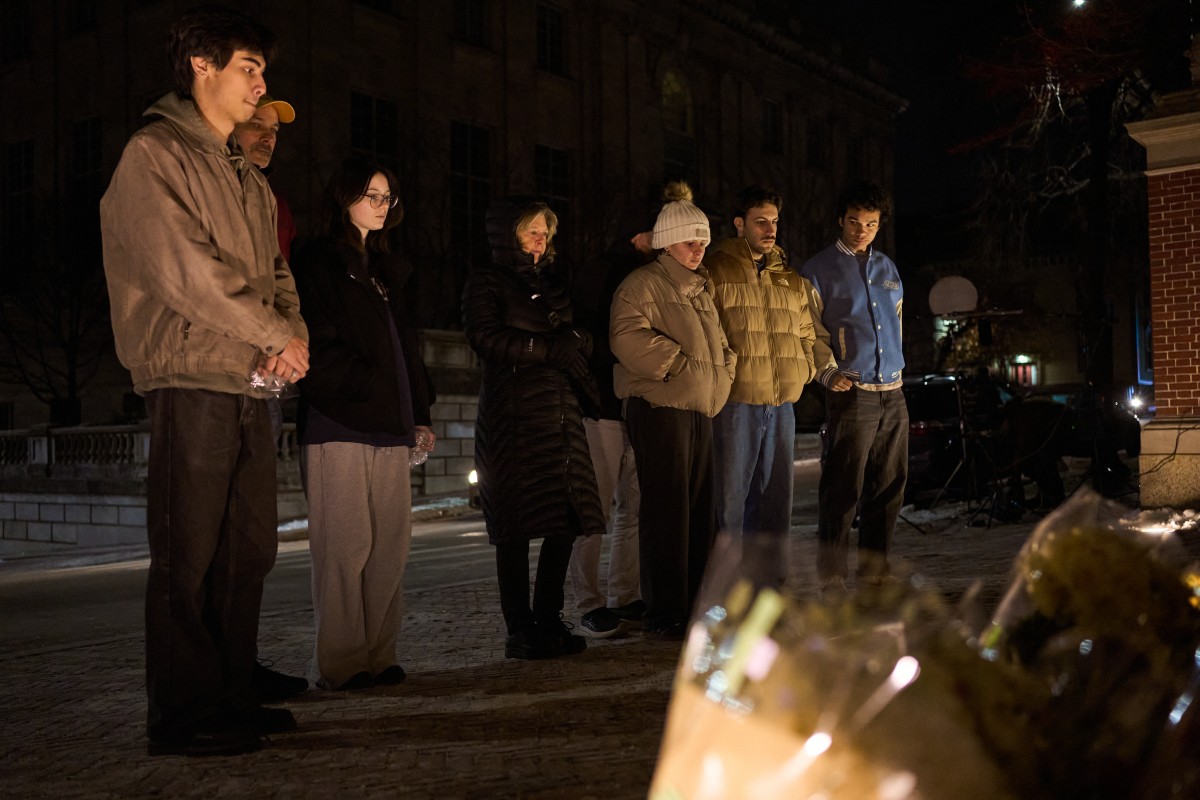
According to the statement, investigators are “seeking the public’s help to identify and speak with an individual” who was seen “near” the suspect at the time of the attack.
The Providence Police Department in Rhode Island released three photos of the person of interest, whose face has been blurred. In the images, the individual is wearing navy blue clothing, what appears to be a green hood, and carrying a light-colored backpack.
Earlier, authorities had released several photos and videos of a suspect described as “approximately 5 feet 8 inches tall, with a stocky build,” dressed in dark clothing, with their face covered by a surgical mask and wearing a beanie. The suspect’s identity remains unknown.
Authorities are offering a $50,000 reward for any information leading to the identification, arrest, and conviction of the person responsible for the killings, who is considered armed and dangerous.
The gunman opened fire on Saturday at Brown University’s engineering and physics building, where exams were being held, killing students Ella Cook and Mukhammad Aziz Umurzokov. The names of the nine people injured have not been released.
International
Police investigate deaths of Rob Reiner and wife as apparent homicide
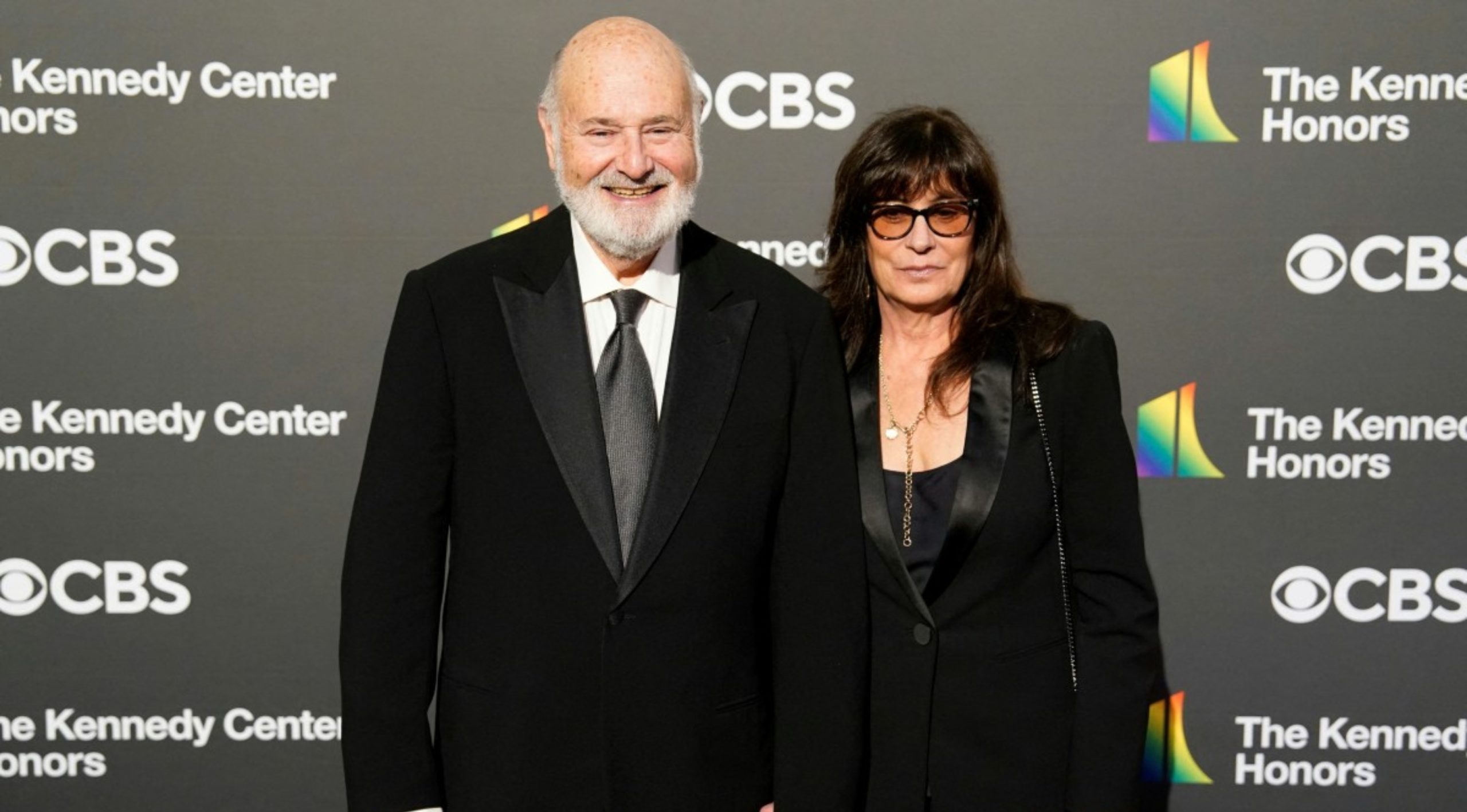
The Los Angeles Police Department (LAPD) is investigating the deaths of Hollywood actor and filmmaker Rob Reinerand his wife as an “apparent homicide,” amid a wave of tributes to the director of classics such as When Harry Met Sally.
According to U.S. media reports on Sunday, Rob Reiner and Michele Singer Reiner were found dead at their Los Angeles mansion with what appeared to be stab wounds.
Several political figures shared messages of condolence following the reported deaths of the director of A Few Good Menand his wife.
While the LAPD did not officially confirm the identities of the victims, it stated that homicide detectives were dispatched to the Reiner residence.
“At this time, no additional details are available and the investigation into an apparent homicide is ongoing,” the Los Angeles Police Department said in a statement posted on social media.
LAPD Deputy Chief Alan Hamilton told reporters that no arrests have been made and that no individuals are currently being questioned as suspects.
“I’m not going to confirm whether anyone is being questioned at this moment or not. We are going to try to speak with as many family members as we can,” Hamilton said.
CNN reported that a family spokesperson confirmed the deaths of Reiner and his wife.
California Governor Gavin Newsom, former U.S. President Barack Obama, and former Vice President Kamala Harrisissued statements expressing their condolences.
-

 Central America3 days ago
Central America3 days agoPanama seizes over three tons of drugs hidden in Caribbean port container
-

 International3 days ago
International3 days agoPolice investigate deaths of Rob Reiner and wife as apparent homicide
-

 International5 days ago
International5 days agoSeveral people shot in attack on Brown University campus
-

 Central America3 days ago
Central America3 days agoOAS urges swift recount in Honduras as election results remain uncertain
-

 Central America2 days ago
Central America2 days agoBukele says AI partnership with xAI will transform public education in El Salvador
-
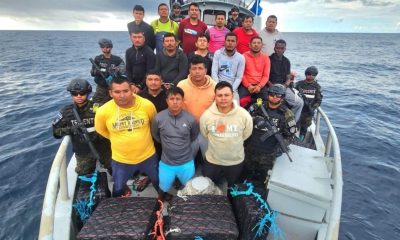
 Central America2 days ago
Central America2 days agoEl Salvador ranks among top countries in the Americas in fight against organized crime
-

 International5 days ago
International5 days agoU.S. and Mexico Reach Deal to Address Water Deficit Under 1944 Treaty
-

 International18 hours ago
International18 hours agoRubio rules out 2028 presidential bid if Vance runs
-
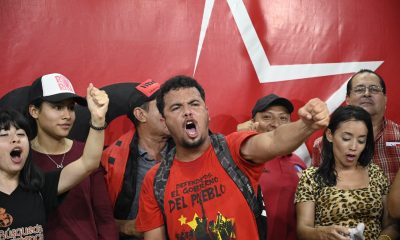
 Central America18 hours ago
Central America18 hours agoArrests and clashes in Tegucigalpa as vote count continues after Honduras election
-

 International18 hours ago
International18 hours agoAuthorities search for armed and dangerous suspect in fatal Brown University attack































